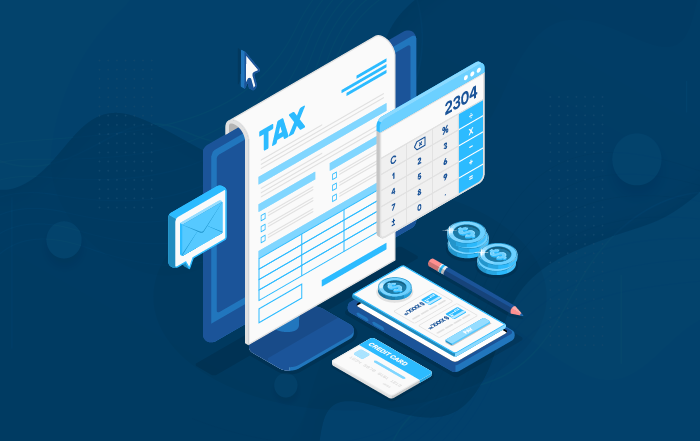
Introduction
The telecommunications industry has grown into one of the most dynamic sectors in the global economy. From traditional landlines to mobile data, cloud-based calling, and advanced 5G networks, the industry has transformed how people connect. However, this rapid evolution has brought with it an equally complex web of tax obligations and compliance requirements. Telecom providers, internet-based platforms, and service resellers all face an environment where tax rules are constantly changing and differ from one jurisdiction to another. This is where telecom tax services come into play, offering clarity and compliance in an otherwise challenging landscape.
Why Telecom Taxation Is More Complex Than Other Industries
Unlike standard sales tax, telecommunications taxation involves multiple layers of regulation. Governments view telecom as both a utility and a revenue source, leading to overlapping rules at the federal, state, and local levels.
- Variety of services: Voice, messaging, internet, and streaming often fall under different tax classifications.
- Multiple jurisdictions: A call routed across states may be subject to varying tax rates and surcharges.
- Rapid innovation: Emerging services like VoIP or satellite-based internet introduce new tax implications that regulators are still adapting to.
- Frequent updates: Tax rates and compliance laws are revised regularly, demanding constant monitoring.
For businesses, these complexities can translate into significant risks if not managed carefully.
The Role of Telecom Tax Services
Telecom tax services are designed to help organizations stay compliant with ever-changing regulations. Their core functions usually include:
- Tax calculation and reporting – Ensuring accurate billing of taxes and surcharges.
- Compliance management – Monitoring legislative updates to stay aligned with new rules.
- Audit readiness – Preparing documentation in case of government audits.
- Risk reduction – Identifying potential non-compliance before it becomes costly.
For both large carriers and small resellers, relying on such services reduces the burden on internal teams while improving accuracy and efficiency.
The Impact of Technology on Telecom Tax Compliance
As telecom continues to merge with digital services, taxation becomes increasingly complex. For instance:
- VoIP and cloud services blur the line between telecom and software, raising questions about which tax category they fall under.
- Streaming platforms often pay telecom-related fees, even though their primary focus is entertainment.
- 5G networks are introducing new infrastructure-related surcharges as municipalities seek revenue for expansion projects.
These changes demand a deeper understanding of how technology shapes tax obligations. Businesses that ignore these shifts risk falling behind both competitively and legally.
Key Challenges in Telecom Taxation
Businesses face several recurring challenges:
- Jurisdictional Overlap – A single service may be taxed by multiple states or localities.
- Data Management – Handling large volumes of transactional data for accurate reporting.
- Constant Updates – New legislation requires immediate adaptation to billing systems.
- Audit Exposure – Even minor mistakes can lead to significant penalties.
Addressing these challenges without expert assistance can be overwhelming, which explains why specialized services are in demand.
How Telecom Tax Services Benefit Businesses
The benefits of adopting professional tax compliance solutions extend beyond simply avoiding penalties. They include:
- Improved Efficiency – Automating tax calculations and filings saves time.
- Cost Savings – Preventing overpayment or penalties preserves revenue.
- Enhanced Customer Trust – Accurate billing ensures consumers are not overcharged.
- Strategic Focus – Businesses can concentrate on growth instead of compliance issues.
Ultimately, telecom tax services allow organizations to remain compliant while keeping their operational focus on customer experience and innovation.
The Future of Telecom Taxation
Looking ahead, telecom taxation is set to become even more intricate as technology advances:
- Internet of Things (IoT): With billions of connected devices, new categories of tax may emerge.
- Cross-border services: International roaming and digital platforms face growing scrutiny from regulators.
- AI-driven compliance: Artificial intelligence may soon assist in predicting regulatory changes.
- Sustainability fees: Green taxes could be introduced as networks expand their energy usage.
Organizations that proactively adapt to these trends will find themselves better positioned to handle future challenges.
Conclusion
The telecommunications industry will continue to expand in scope and sophistication, but with that growth comes greater tax responsibility. From traditional services to emerging technologies, compliance is a moving target that requires constant vigilance. Leveraging expert support through telecom tax services provides businesses with the tools to navigate complexity, minimize risks, and remain focused on innovation. In an industry where change is the only constant, staying compliant is not just about following the law it is about ensuring long-term sustainability and trust.
FAQs
1. Why are telecom taxes more complicated than regular sales taxes?
Telecom taxes involve multiple layers of regulation across federal, state, and local levels. Services like voice, data, and streaming are taxed differently, making compliance more complex than traditional retail sales.
2. Who needs telecom tax services?
Telecom tax services benefit carriers, resellers, VoIP providers, streaming platforms, and any business offering communication services that may fall under regulatory taxation.
3. How often do telecom tax regulations change?
Regulations can change quarterly or even monthly depending on the jurisdiction. This frequent updating requires businesses to stay alert and adapt quickly to remain compliant.
4. What happens if a business fails to comply with telecom tax laws?
Non-compliance can lead to penalties, interest charges, damaged reputation, and in severe cases, loss of business licenses. This makes professional compliance support essential for sustainability.